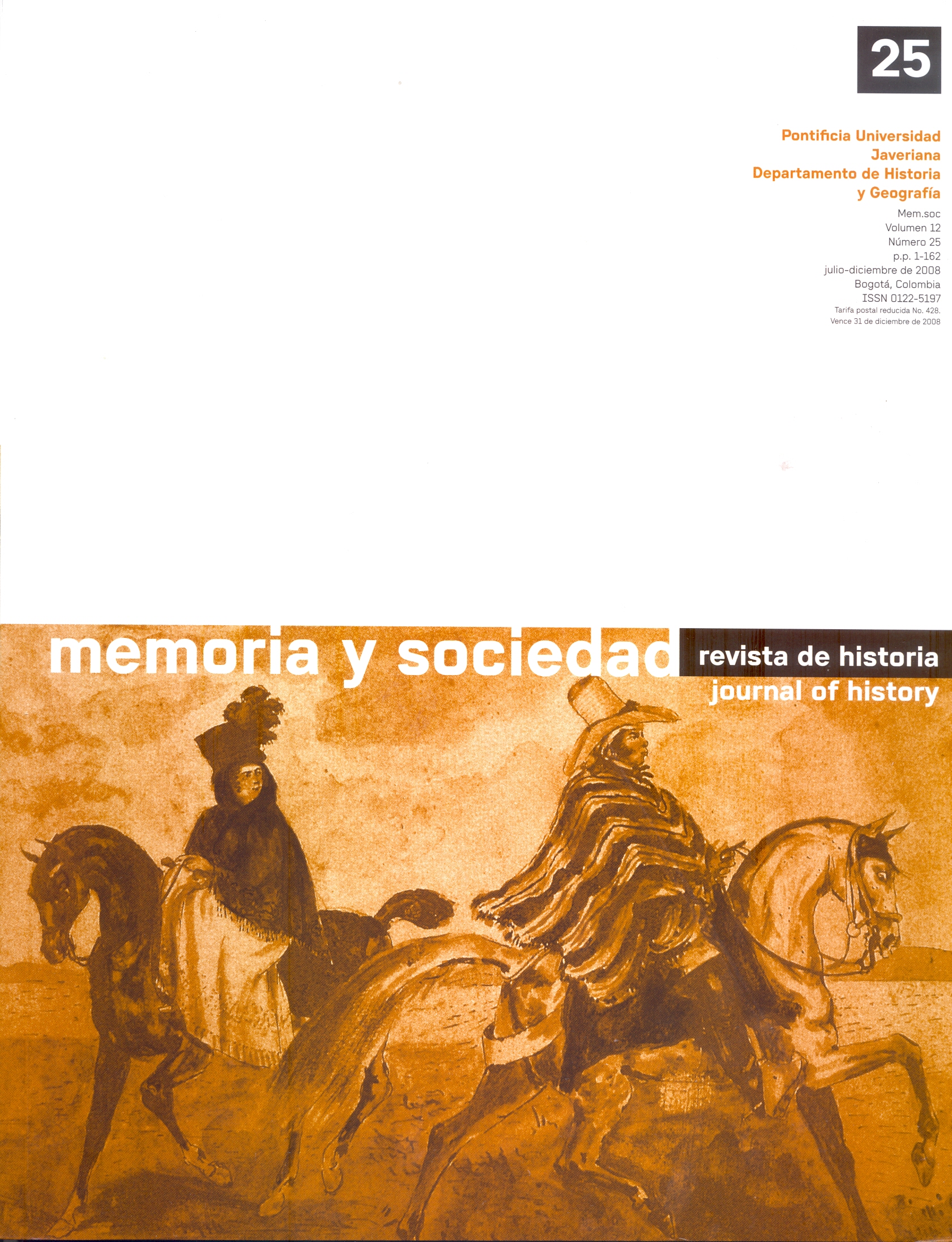Abstract
This article reflects on the meaning that the slavery as well as his abolition have in the formation of the public–political thing, understanding it as the common references that regulate the social relations and the criteria of legitimization, shared by those who are perceived as members of the society. It asks for the role of the slaved population during the building process of the references of citizenship and of the Republic during the first half of the XIX century. The slavery system inhibited the participation of the slaves in the construction of the public thing. Despite the resistance of this population and, after the independence, in spite of the attempts of a sector of the elite for turning them into free and equal citizens allowing their access to the space of freedom of the republic, during the process of abolition, the interests and the social and racial prejudices of the slavers had the priority, thus, prolonging the formal abolition until the middle of the century.The journal Memoria y Sociedad is registered under a Creative Commons Attribution 4.0 International Public License. Thus, this work may be reproduced, distributed, and publicly shared in digital format, as long as the names of the authors and Pontificia Universidad Javeriana are acknowledged. Others are allowed to quote, adapt, transform, auto-archive, republish, and create based on this material, for any purpose (even commercial ones), provided the authorship is duly acknowledged, a link to the original work is provided, and it is specified if changes have been made. Pontificia Universidad Javeriana does not hold the rights of published works and the authors are solely responsible for the contents of their works; they keep the moral, intellectual, privacy, and publicity rights.
Approving the intervention of the work (review, copy-editing, translation, layout) and the following outreach, are granted through an use license and not through an assignment of rights. This means the journal and Pontificia Universidad Javeriana cannot be held responsible for any ethical malpractice by the authors. As a consequence of the protection granted by the use license, the journal is not required to publish recantations or modify information already published, unless the errata stems from the editorial management process. Publishing contents in this journal does not generate royalties for contributors.

